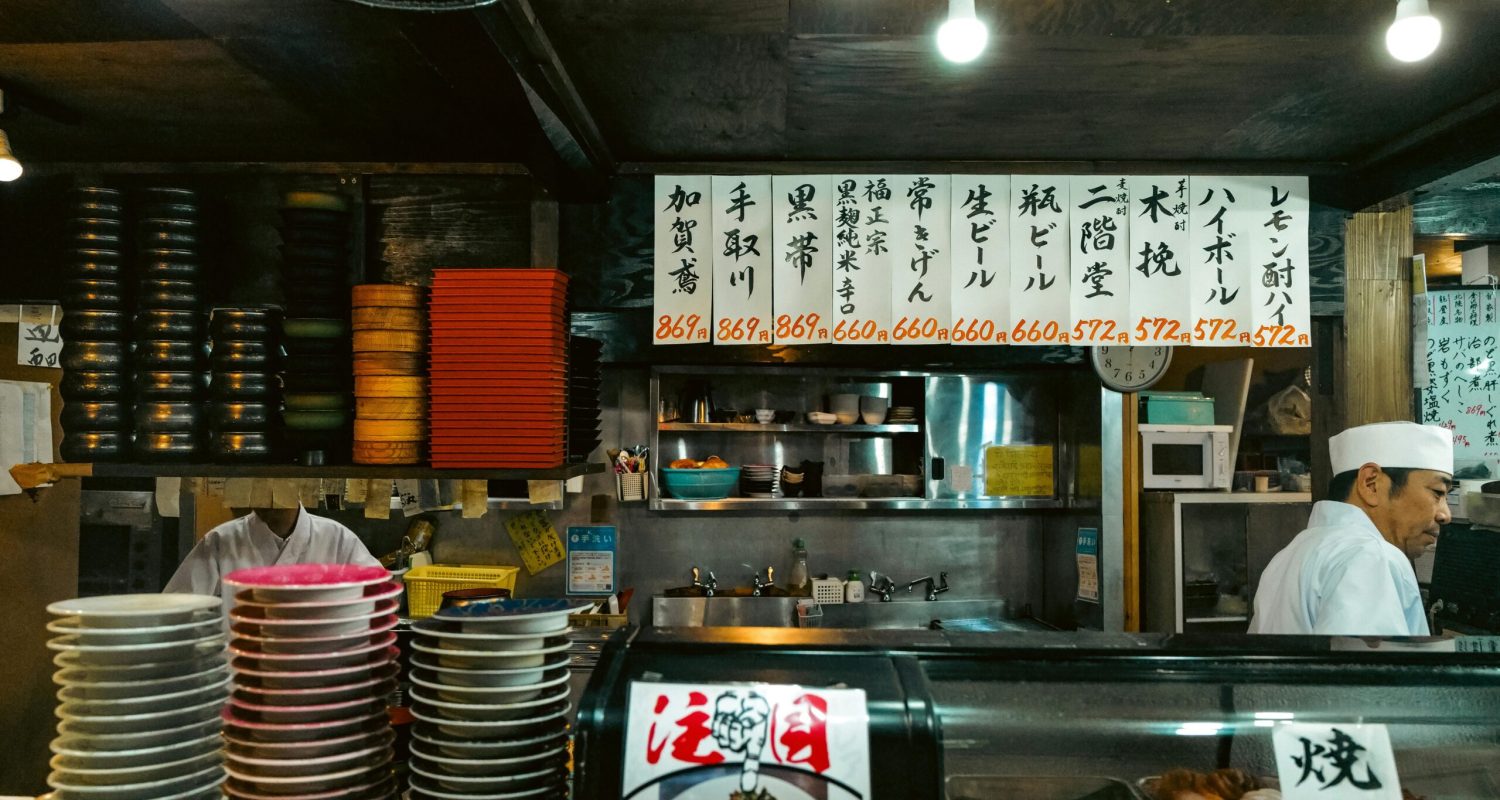At Commercialize Insurance Services (CIS), we understand that no two restaurants are exactly alike, especially when comparing sushi bars and tapas establishments. These two popular yet distinct dining formats come with unique culinary techniques, customer expectations, and operational rhythms. Sushi restaurants often rely on delicate seafood handling, strict temperature controls, and high-end service, while tapas venues focus on fast-paced, high-volume plating, shared dishes, and vibrant beverage pairings. Each brings its own set of risks from foodborne illness and liquor liability to equipment failure and fire hazards.
That’s why it’s essential not to settle for a one-size-fits-all insurance policy. As Florida’s trusted independent agency specializing in hospitality coverage, we help restaurant owners compare restaurant insurance quotes Florida-wide to ensure their coverage reflects the specific exposures of their concept. Whether you’re running an omakase counter in Sarasota or a lively tapas bar in Fort Lauderdale, Commercialize Insurance Services (CIS) offers expert guidance to help you identify gaps, secure tailored protection, and save on premiums through smart policy bundling. In this guide, we’ll walk you through how insurance needs differ between sushi and tapas restaurants and how you can make informed decisions when it’s time to compare restaurant insurance quotes Florida and choose the best option for your business.
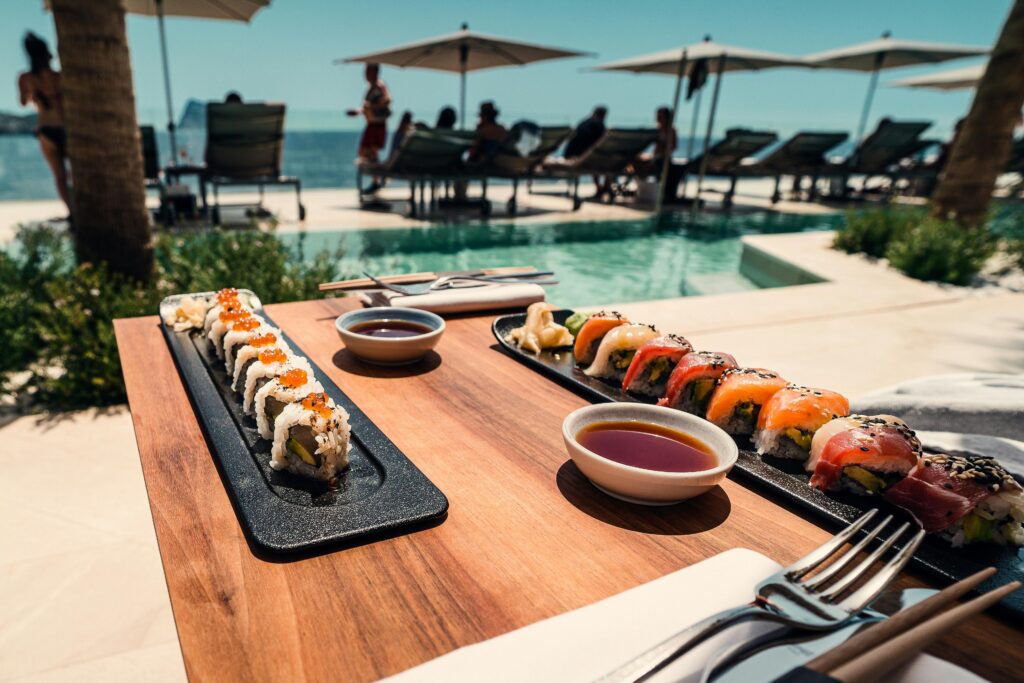
Sushi vs. Tapas: Two Unique Restaurant Models, Two Risk Profiles
Running a restaurant in Florida means making careful choices about how you manage risk and those choices can vary greatly depending on your restaurant concept. Sushi and tapas restaurants represent two highly distinct culinary experiences, each with its own operational model, customer flow, and exposure to loss. At Commercialize Insurance Services (CIS), we work closely with restaurant owners to help them understand these nuances so they can make smart decisions when it’s time to compare restaurant insurance quotes Florida offers.
Sushi Restaurants: High Standards and High Stakes
Sushi establishments are defined by their craftsmanship, clean aesthetics, and top-tier ingredients. Behind the scenes, however, they operate under some of the most stringent health and safety protocols in the industry. These restaurants handle raw seafood that must be kept at precise temperatures, often in high-end refrigeration systems. Their chefs use razor-sharp knives and complex techniques that require extensive training. One small misstep, slight temperature fluctuation or a hygiene oversight can expose the restaurant to major liability.
Risk Snapshot:
- Foodborne illness caused by raw fish or cross-contamination
- Equipment failure (especially refrigeration units) that can lead to spoiled inventory
- Health code violations resulting in business closures and reputation damage
- Employee injuries related to sharp tools and precise preparation tasks
For sushi restaurants, tailored coverage that includes general liability, spoilage protection, equipment breakdown, and workers’ compensation is critical. When you compare restaurant insurance quotes Florida -wide, it’s essential to look beyond basic coverage and evaluate how each policy addresses the risks unique to sushi operations.
Tapas Restaurants: Lively Atmospheres and Liquor Exposure
In contrast, tapas restaurants thrive on energy and social interaction. These establishments often feature bustling kitchens, small plate menus, communal dining, and a strong emphasis on wine, cocktails, and late-night ambiance. With higher customer volumes and alcohol service comes an increased potential for accidents and incidents both on and off the premises.
Risk Snapshot:
- Slip-and-fall accidents due to heavy foot traffic or spills
- Liquor liability concerns from intoxicated patrons
- Fire risks associated with open flame cooking and crowded kitchens
- Labor law claims stemming from larger, rotating staff
For tapas venues, the right coverage might include liquor liability, fire protection, business interruption insurance, and employment practices liability. That’s why we help our clients compare restaurant insurance quotes Florida with a focus on these elevated exposures ensuring their policy addresses real-world threats while remaining cost-effective.
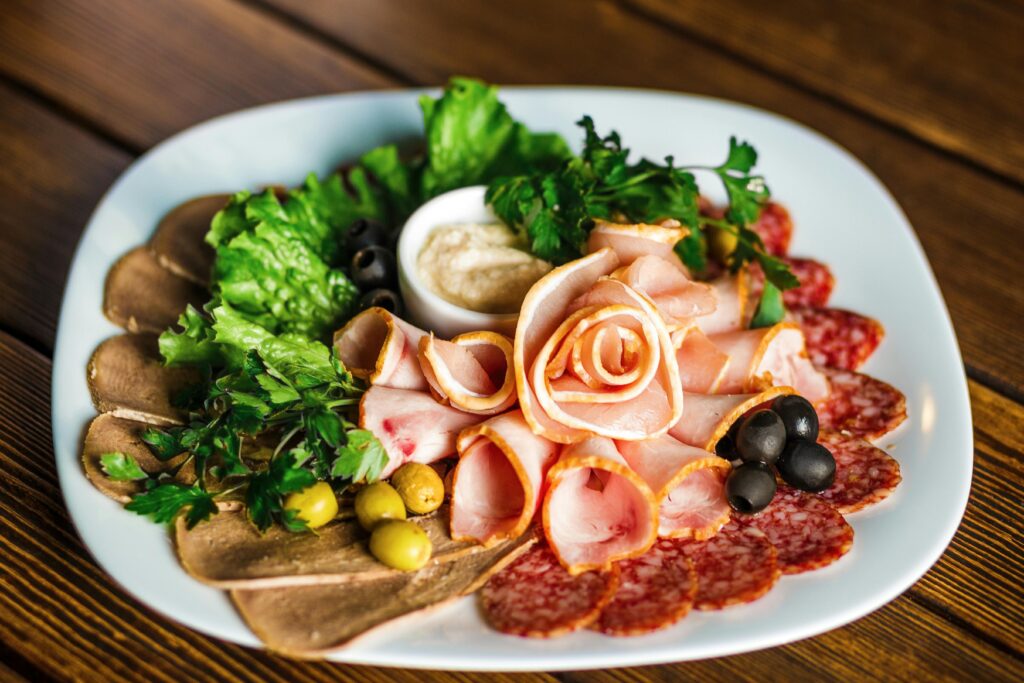
General Liability Insurance: The Backbone of Your Coverage
Whether you’re slicing sashimi behind a quiet sushi bar or serving sangria to a packed house at a tapas lounge, one constant remains: accidents happen. That’s why General Liability Insurance is the foundation of any restaurant insurance strategy. This essential policy protects against third-party claims involving bodily injury, property damage, and personal injury risks that are not only common but potentially devastating without proper coverage.
However, while General Liability is a must for all foodservice businesses, the specific risks it addresses can vary dramatically depending on your restaurant concept. Understanding these subtleties can make a major difference when it’s time to compare restaurant insurance quotes Florida restaurant owners rely on.
Sushi Restaurants: Clean Lines, High Risk
Sushi restaurants may project calm and precision, but behind the serene ambiance lie serious liability exposures.
- Foodborne Illness Claims: Raw seafood presents an elevated risk. If even one diner becomes sick due to improper handling or contamination, the resulting legal action and PR damage can be substantial.
- Minimalist Aesthetic Hazards: Sushi venues often feature sleek, minimalist design, polished tile or hardwood floors, sharp corners, and open spaces. While beautiful, these elements can contribute to slip-and-fall accidents, especially when floors become wet or cluttered.
To mitigate these risks, your General Liability policy should include food-related claim protection and premises liability tailored to the environment. At Commercialize Insurance Services (CIS), we help sushi owners compare restaurant insurance quotes Florida that account for these subtle yet significant factors.
Tapas Restaurants: Buzzing with Activity and Exposure
Tapas establishments thrive on movement, energy, and high guest volume. But with that liveliness comes a different set of risks:
- Liquor Liability Integration: Tapas spots often feature robust drink menus and extended service hours. Incidents involving intoxicated guests, whether they result in injuries or property damage can leave your business financially exposed if liquor liability isn’t properly built into your General Liability policy.
- Crowd Control Challenges: These restaurants are frequently busy, loud, and densely packed. This increases the chance of patrons tripping over chairs, slipping on spilled drinks, or engaging in altercations any of which can result in claims against your business.
Because of these heightened exposures, tapas restaurants should prioritize comprehensive General Liability coverage that includes liquor liability extensions and protections for high-traffic environments.
According to the Insurance Information Institute (III), maintaining robust General Liability coverage is one of the most effective ways to shield your business from lawsuits and financial hardship. At Commercialize Insurance Services (CIS), we don’t just quote, we analyze, customize, and help you compare restaurant insurance quotes Florida to find the best value and fit for your unique needs.
Restaurant Workers Compensation Insurance: Prioritizing Staff Safety
Behind every great restaurant is a hardworking teamchefs, line cooks, servers, and dishwashers who keep the operation running smoothly. But restaurant work is physically demanding and fast-paced, often exposing employees to injuries that can happen in an instant. That’s why Workers Compensation Insurance isn’t just a legal requirement in Florida, it’s a critical safeguard for your staff and your business.
Under Florida law, most businesses with four or more employees are required to carry Workers Compensation coverage. This policy provides benefits for medical care, lost wages, and rehabilitation in the event of a workplace injury or illness. But what’s often overlooked is how the risks vary between restaurant types and how that should shape your policy selection when you compare restaurant insurance quotes Florida-wide.
Sushi Establishments: Precision Work, Hidden Risks
In sushi restaurants, the demands of craftsmanship come with very real physical hazards:
- Knife and Burn Injuries: Sushi chefs routinely use ultra-sharp knives for detailed cutting and operate near heated rice cookers and surfaces. One small slip can result in deep lacerations or thermal burns.
- Repetitive Stress Injuries: The meticulous, repetitive motions involved in slicing, rolling, and plating can lead to chronic wrist, elbow, or shoulder conditions over time.
These risks require Workers Compensation coverage that takes into account the long-term nature of strain injuries and the immediate medical response needed for cuts and burns.
Tapas Establishments: High-Speed Service, High Impact
Tapas restaurants typically have bustling kitchens, large front-of-house teams, and a fast-moving atmosphere that brings a different set of challenges:
- Crowded Kitchens: Compact or open kitchen layouts often mean cooks work side by side under pressure, increasing the likelihood of accidents like burns, slips, and cuts.
- Server Accidents: Servers carry multiple plates, navigate tight spaces, and move quickly to meet guest demand, creating a higher chance of falls, twisted ankles, or back injuries from lifting.
A comprehensive Workers Compensation policy should provide prompt claims support, access to medical providers, and clear documentation procedures all of which we help coordinate when you compare restaurant insurance quotes Florida through Commercialize Insurance Services (CIS).
We go beyond basic coverage to ensure that your restaurant workers compensation insurance Florida plan is customized for your staffing structure, kitchen layout, and service model. Whether you run a tranquil sushi bar or a buzzing tapas hotspot, our team ensures that your employees are protected, your business remains compliant, and you’re positioned to handle claims efficiently without disrupting operations.
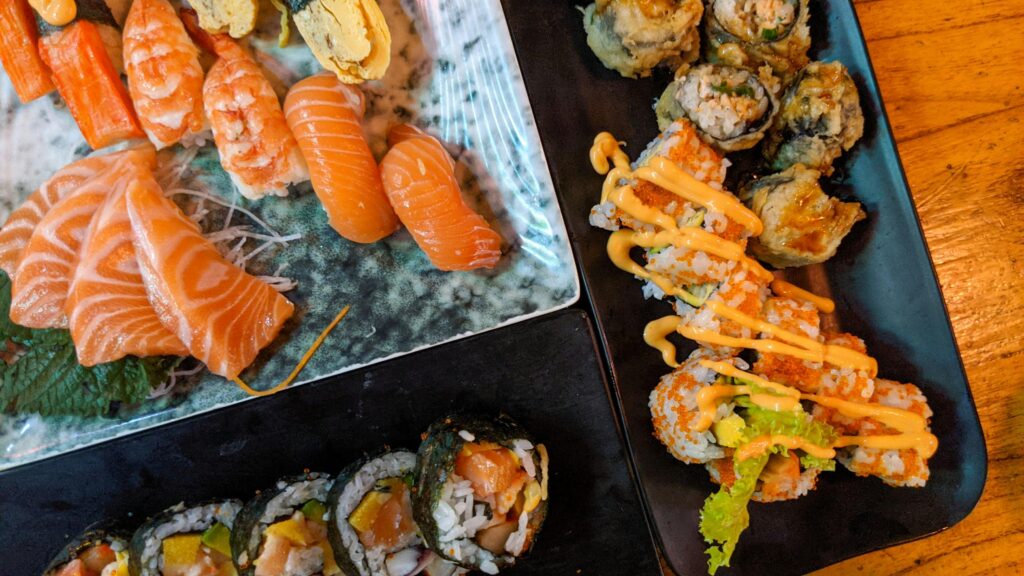
Restaurant Commercial Property Insurance: Safeguarding the Essentials
Whether you own your building or lease a space in a busy Florida district, protecting your restaurant’s physical assets is non-negotiable. Restaurant Commercial Property Insurance ensures that the equipment, furnishings, and inventory you’ve invested in are safeguarded against unexpected events like fire, theft, storms, or equipment breakdowns. It’s not just about what’s visible to customers; it’s about everything that keeps your restaurant operational behind the scenes.
When you compare restaurant insurance quotes Florida offers, one of the most important things to evaluate is how each policy treats the assets specific to your restaurant type. Sushi and tapas establishments rely on very different equipment, layouts, and design investments, and these differences matter greatly when building a customized property insurance plan.
Sushi Restaurants: Precision Tools, Temperature Control
Running a sushi restaurant means relying heavily on specialized, high-value equipment to maintain freshness and safety.
- Sensitive Equipment: From sushi display fridges and temperature-controlled prep stations to ventilation systems and rice cookers, sushi operations require precision tools that are costly to replace or repair.
- Inventory Losses: With raw seafood being highly perishable and expensive, a sudden power outage or refrigeration failure could result in thousands of dollars in spoiled inventory losses that not every standard policy covers unless spoilage or equipment breakdown riders are included.
When we help sushi restaurants compare restaurant insurance quotes Florida, we ensure they’re not just covered for building damage, but also for the operational disruptions that result from equipment failure or food spoilage.
Tapas Restaurants: Heat, Fire, and Atmosphere
Tapas restaurants are often vibrant, atmospheric spaces designed for energy and experience but that ambiance brings additional risk.
- Fire Risk: Open flames, hot oil, and crowded kitchen lines increase the chance of accidental fires. Without adequate property coverage, one kitchen mishap could lead to tens of thousands in repairs or worse, a temporary closure.
- Ambiance Investment: Many tapas bars pour significant resources into decor, lighting, furnishings, sound systems, and custom bar installations. These design elements are critical to the guest experience and should be fully insured for replacement cost, not just depreciated value.
The U.S. Small Business Administration (SBA) emphasizes the importance of property insurance as part of a complete risk management strategy, noting that disaster-related physical damage can severely impact a small business’s ability to recover.
At Commercialize Insurance Services (CIS), we take that guidance seriously. We work with restaurant owners across Florida to help them compare restaurant insurance quotes Florida with a specific focus on physical asset protection. Our goal is to make sure your policy reflects your actual investment so you’re never caught underinsured when disaster strikes.
Business Interruption Insurance: Keeping You Afloat When Operations Stop
In the restaurant world, time is money and when disaster strikes, even a short interruption can lead to significant financial losses. Whether it’s a kitchen fire, a hurricane, or a utility failure, unexpected closures can halt revenue, impact payroll, and threaten long-term survival. That’s where Business Interruption Insurance becomes essential. This often-overlooked coverage helps replace lost income, cover fixed expenses like rent and utilities, and ensure your staff continues to get paid while your doors are closed.
When we help restaurant owners compare restaurant insurance quotes Florida, we always emphasize the importance of Business Interruption Insurance tailored to the realities of your operation, not just industry averages or basic projections.
Sushi Restaurant Scenarios: Delicate Operations, Rapid Losses
Sushi restaurants rely on freshness and consistency. When those are disrupted, even briefly, recovery becomes expensive.
- Refrigeration Breakdown: A sudden equipment failure causes thousands in spoiled seafood and a mandatory closure for repairs. With no income during that downtime, Business Interruption Insurance can step in to keep your cash flow steady.
- Forced Evacuation Due to Nearby Fire: Even if the fire isn’t in your restaurant, smoke damage or mandatory evacuations can shut down your location for days or weeks during which you’re still responsible for overhead costs.
A properly structured policy ensures coverage not only for lost income but also for clean-up time, re-inspections, and restocking before reopening.
Tapas Restaurant Scenarios: High-Energy Spaces, High Exposure
Tapas venues often operate at high volumes, especially on weekends, making even short disruptions financially painful.
- Kitchen Fire from Electrical Malfunction: An overloaded outlet or faulty equipment leads to a fire that forces closure for extensive repairs. Without Business Interruption Insurance, covering rent and payroll during this period could become impossible.
- Storm Damage During Peak Season: In Florida, storm season poses a constant threat. If a storm damages your space right before a major holiday or event weekend, Business Interruption Insurance can help recover lost revenue from missed reservations and group bookings.
At Commercialize Insurance Services (CIS), we don’t just sell policies, we tailor protection around your busiest seasons, average weekly revenue, and fixed overhead. We understand that a sushi restaurant in Naples may depend on winter tourist traffic, while a tapas bar in Miami might thrive on weekend nightlife. That’s why, when we help you compare restaurant insurance quotes Florida, we factor in your specific business rhythms to ensure your coverage performs when it matters most.
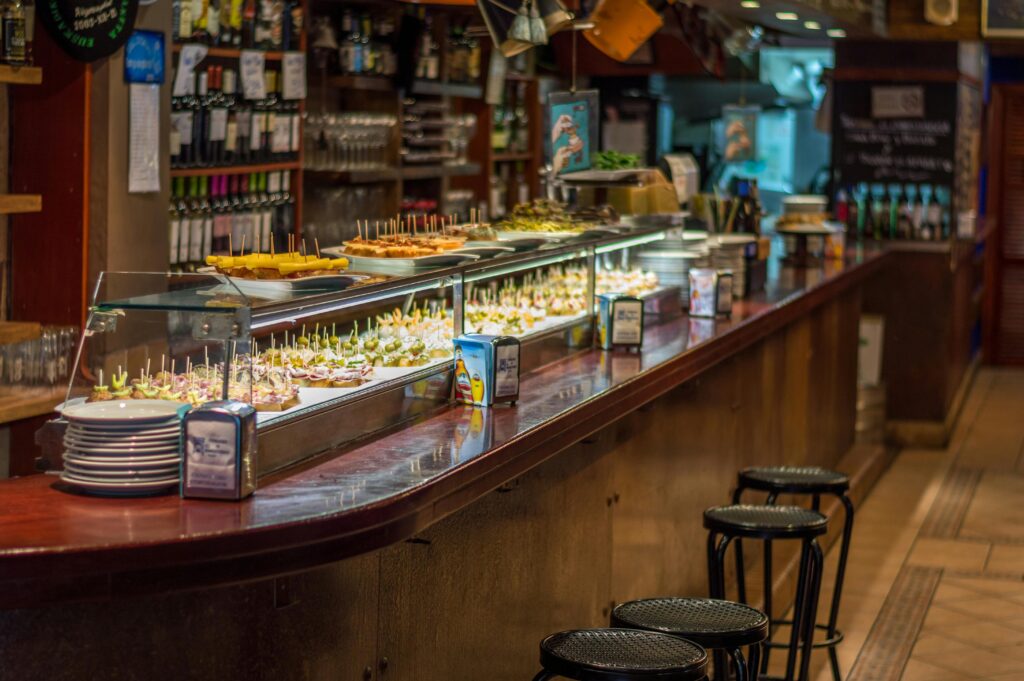
Liquor Liability Insurance: Essential for Tapas, Optional but Still Smart for Sushi
Serving alcohol can be a profitable part of your restaurant’s business model, but it also comes with significant legal responsibility. Liquor Liability Insurance is designed to protect your establishment from claims arising from alcohol-related incidents, whether they occur on your premises or after a patron has left. This includes situations like DUI accidents, fights, or injuries caused by an intoxicated customer.
When evaluating coverage, we always remind our clients: if you serve alcohol in any capacity, even limited, you need to factor liquor liability into your risk management strategy. At Commercialize Insurance Services (CIS), we help restaurant owners compare restaurant insurance quotes Florida to ensure this crucial protection is neither overlooked nor underwritten.
Tapas Restaurants: A Must-Have for Alcohol-Centric Models
Tapas restaurants often build their experience around drinks, wine pairings, cocktails, sangrias, or full bar service. With lively atmospheres and late-night hours, the likelihood of incidents tied to alcohol consumption increases significantly.
- High Alcohol Sales Volume: The more alcohol you serve, the greater your exposure. A single intoxicated guest causing an accident can trigger a six-figure claim.
- Social Environments: Tapas bars are designed for mingling and group gatherings, which can escalate risks of altercations or property damage.
- Extended Service Hours: Longer hours increase the chance of overservice, especially during happy hours or special events.
Liquor Liability Insurance for tapas venues is not optionality essential. We ensure your policy includes third-party injury protection, legal fees, and coverage for incidents occurring off-premises but stemming from your service.
Sushi Restaurants: Often Overlooked but Still Vulnerable
While sushi restaurants may not always center their service around alcohol, many offer sake, Japanese beer, or wine as an enhancement to the meal. Even if alcohol sales make up a small percentage of your revenue, that doesn’t eliminate your liability risk.
- Minimal Service Still Equals Responsibility: Serving even one alcoholic drink places you under Florida’s Dram Shop laws.
- Specialty Pairings and Upscale Offerings: Many upscale sushi venues provide sake flights or premium pairings, which can add up quickly in alcohol consumption.
- Quiet Doesn’t Mean Risk-Free: Incidents may still occur especially if guests bar-hop after leaving or drive under the influence.
That’s why, when we help sushi and tapas owners compare restaurant insurance quotes Florida, we include discussions about liquor exposure even if it’s limited to avoid gaps that could prove costly.
At Commercialize Insurance Services (CIS), we also assist you in staying compliant with the Florida Department of Business and Professional Regulation (DBPR) and offer guidance on responsible beverage service protocols. From bartender training recommendations to policy limits that align with your service model, we’re here to help you make informed decisions that protect both your customers and your bottom line.
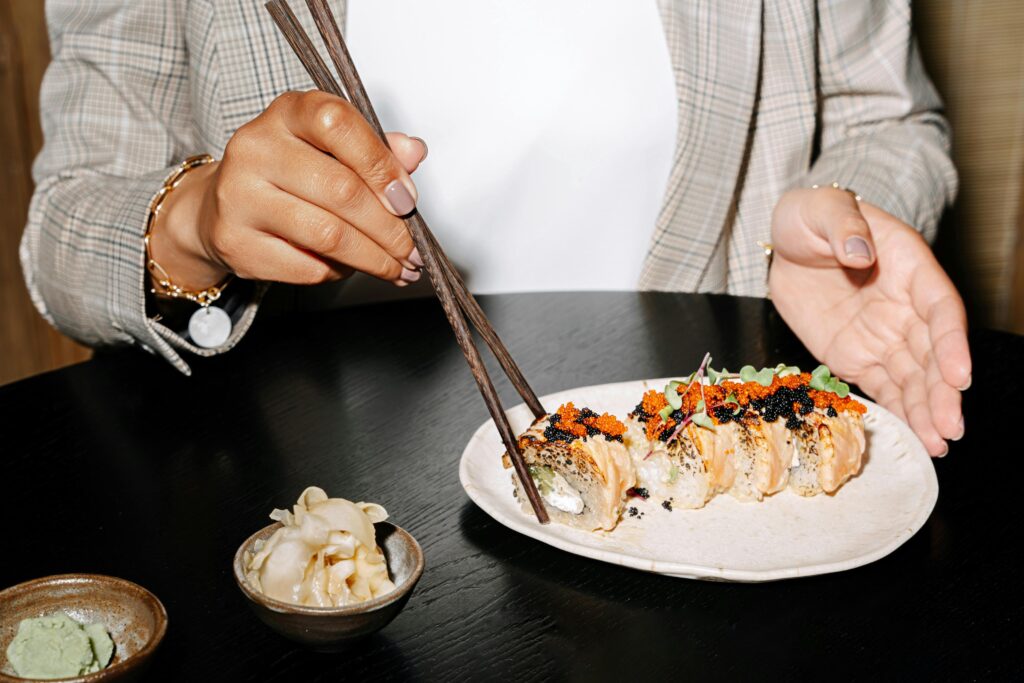
Comparing Bundled vs. A La Carte Coverage
Many of our clients benefit from a bundled Business Owners Policy (BOP), which combines key coverages at a better rate:
A BOP typically includes:
- General Liability
- Commercial Property
- Business Interruption
Add-ons we often recommend:
- Liquor Liability for tapas venues
- Workers Compensation for full-time kitchens
- Cyber Liability for POS systems
Real-World Examples: Sushi vs. Tapas Claims
Here’s how risk plays out differently in the real world:
- Sushi Case Study: A power outage in a sushi bar resulted in the loss of $12,000 in inventory. Business interruption insurance covered four days of lost revenue.
- Tapas Case Study: A tapas lounge faced a $100,000 claim after a patron slipped on spilled sangria and fractured an arm. General and liquor liability policies together covered legal and medical costs.
This is why we go beyond cookie-cutter coverage. We analyze the actual risks specific to your concept and location.
Regulatory Factors in Florida: Local Laws Matter
Florida is unique in its health, labor, and liquor licensing laws. Some examples:
- Sushi operators must meet Department of Health requirements for fish handling and storage.
- Tapas venues must navigate alcohol licensing and food-to-beverage sales ratios.
Staying compliant means staying insured correctly. We stay up to date with both state and local regulations to make sure your policy matches your responsibilities.
How We Help You Compare Restaurant Insurance Quotes Florida
With so many policies and providers, comparing restaurant insurance quotes Florida-wide can be overwhelming. That’s why we simplify the process into four clear steps:
- We Evaluate Your Concept: Layout, menu, staff, alcohol sales, seating capacity, hours of operation.
- We Identify Your Unique Risks: From equipment and staffing to location-specific factors.
- We Customize Your Coverage: No one-size-fits-all policies. Every restaurant gets a tailored package.
- We Compare Rates and Carriers: Using our network of top-rated insurers, we find the right value for your protection.
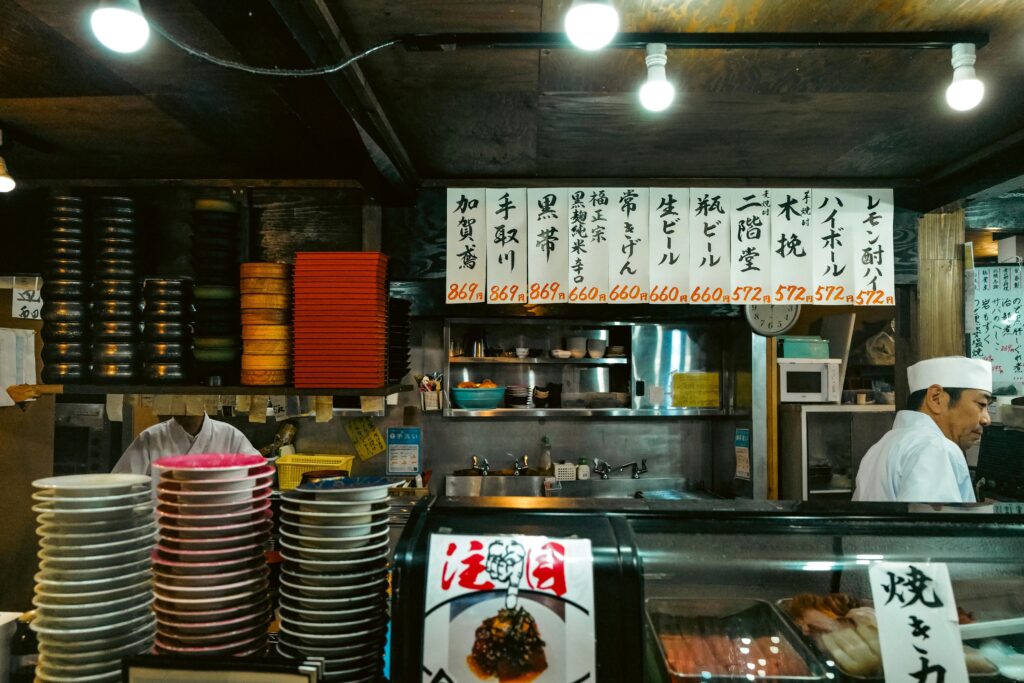
Don’t Leave Your Concept UnprotectedWe’re Here to Help
Whether you’re crafting delicate sashimi or sizzling up patatas bravas, your restaurant deserves protection that fits your model. We’re here to guide you through every step of the process from risk assessment to quote comparison.
Let us help you bundle, customize, and protect your restaurant investment with the confidence of working with Florida’s top restaurant insurance specialists.
Contact Commercialize Insurance Services (CIS) today and brew with confidence tomorrow.
- Phone: (321) 830 – 0006
- Email: info@usa-cis.com
- Web: https://usa-cis.com
- Facebook: Commercialize Insurance Services
- Instagram:@insurance.cis

